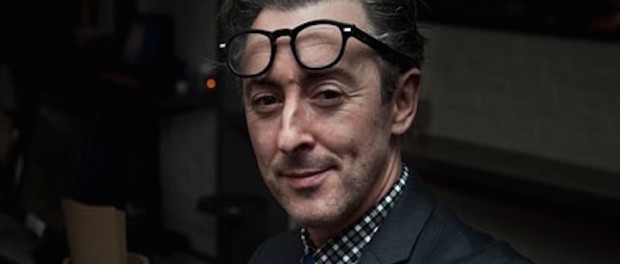Book of the Month Club: Not My Father’s Son by Alan Cumming
“Tom stayed over that night. We both bunked down in the sleeping loft at the very top of the flat. We were spent, dazed, cried and talked out. We said good night and I switched the light off, but after a while I could feel him still awake across from me.
‘You know, Alan, you’re lucky,’ he whispered. ‘You’re lucky you’re not his son.’
‘I know,’ I said.”
There’s this man. You might know him. He wants absolute control. He thinks he’s superior, and that the world is his, that he can have any woman he wants despite being married with children. He can explode at any minute. He is a hypocrite. But worst of all, he enjoys tormenting the weaker and who he perceives as the inferior. Scottish actor and LGBT activist Alan Cumming writes a telling autobiography about growing up with such a man—his father.
Alan is the youngest of two children and the only one living with his parents; his older brother, Tom, was grown, engaged, and no longer living with them. As the years pass, Alan is victim to his father’s physical and emotional abuse, is privy to his father’s brazen affairs with countless different women, and
The story follows a repeating arc: a memory of the author’s father during childhood and how the author is doing today. Throughout the “today” portion, Alan follows the events leading up and around to Alan’s participation in the BBC television show Who Do You Think You Are? that traces his ancestors. In the events surrounding Alan’s appearance, the tabloids inevitably jump on his story and try to provoke Alan’s father to answer to the already well-known story of the father-son estrangement. Then, one day, just before Alan’s appearance on the show, his father swoops in and drops a bombshell on Tom: he wants him and Alan to know that Alan is not his biological son, sending both brothers into a whirlwind of sadness, but also joy. But is it true, or is it just another one of his father’s manipulation tactics?
The grief in Alan’s writing is still present, and his high emotions of love, dislike, and confusion towards his father seep through the page. We are privy to good times and bad, audience to intimate family snapshots that tell a story all their own. Despite the influence of his father, Alan more importantly allows himself, and not his father, to be the primary character. His father is sickeningly present even in the passages where the author does not give anecdotes, but Alan shows how his father’s actions influenced him but more importantly taught him what not to do. Alan also gives us glimpses of his acting career from a young adult to middle age, playing everything from Hamlet to drag queens, roles which he comes away with learning one more thing (his observations on society’s conditioning of women as fragile objects through fashion is particularly interesting).
In all, it is an inspiring look of a son growing up and above his father’s abuse. Very much worth a read.






